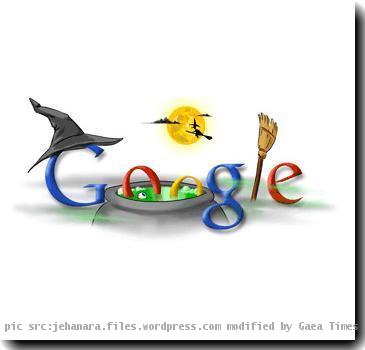Federal appeals court rules for Comcast and against FCC on key ‘net neutrality’ case
By Joelle Tessler, APTuesday, April 6, 2010
FCC loses key ruling on Internet ‘neutrality’
WASHINGTON — A federal court threw the future of Internet regulations into doubt Tuesday with a far-reaching decision that went against the Federal Communications Commission and could even hamper the government’s plans to expand broadband access in the United States.
The U.S. Court of Appeals for the District of Columbia ruled that the FCC lacks authority to require broadband providers to give equal treatment to all Internet traffic flowing over their networks. That was a big victory for Comcast Corp., the nation’s largest cable company, which had challenged the FCC’s authority to impose such “network neutrality” obligations on broadband providers.
Supporters of network neutrality, including the FCC chairman, have argued that the policy is necessary to prevent broadband providers from favoring or discriminating against certain Web sites and online services, such as Internet phone programs or software that runs in a Web browser. Advocates contend there is precedent: Nondiscrimination rules have traditionally applied to so-called “common carrier” networks that serve the public, from roads and highways to electrical grids and telephone lines.
But broadband providers such as Comcast, AT&T Inc. and Verizon Communications Inc. argue that after spending billions of dollars on their networks, they should be able to sell premium services and manage their systems to prevent certain applications from hogging capacity.
Tuesday’s unanimous ruling by the three-judge panel was a setback for the FCC because it questioned the agency’s authority to regulate broadband. That could cause problems beyond the FCC’s effort to adopt official net neutrality regulations. It also has serious implications for the ambitious national broadband-expansion plan released by the FCC last month. The FCC needs the authority to regulate broadband so that it can push ahead with some of the plan’s key recommendations. Among other things, the FCC proposes to expand broadband by tapping the federal fund that subsidizes telephone service in poor and rural communities.
In a statement, the FCC said it remains “firmly committed to promoting an open Internet and to policies that will bring the enormous benefits of broadband to all Americans” and “will rest these policies … on a solid legal foundation.”
Comcast welcomed the decision, saying “our primary goal was always to clear our name and reputation.”
The case centers on Comcast’s actions in 2007 when it interfered with an online file-sharing service called BitTorrent, which lets people swap movies and other big files over the Internet. The next year the FCC banned Comcast from blocking subscribers from using BitTorrent. The commission, at the time headed by Republican Kevin Martin, based its order on a set of net neutrality principles it had adopted in 2005.
But Comcast argued that the FCC order was illegal because the agency was seeking to enforce mere policy principles, which don’t have the force of regulations or law. That’s one reason that Martin’s successor, Democratic FCC Chairman Julius Genachowski, is trying to formalize those rules.
The cable company had also argued the FCC lacks authority to mandate net neutrality because it had deregulated broadband under the Bush administration, a decision upheld by the Supreme Court in 2005.
The FCC now defines broadband as a lightly regulated information service. That means it is not subject to the “common carrier” obligations that make traditional telecommunications services share their networks with competitors and treat all traffic equally. But the FCC maintains that existing law gives it authority to set rules for information services.
Tuesday’s court decision rejected that reasoning, concluding that Congress has not given the FCC “untrammeled freedom” to regulate without explicit legal authority.
With so much at stake, the FCC now has several options. It could ask Congress to give it explicit authority to regulate broadband. Or it could appeal Tuesday’s decision.
But both of those steps could take too long because the agency “has too many important things they have to do right away,” said Ben Scott, policy director for the public interest group Free Press. Free Press was among the groups that alerted the FCC after The Associated Press ran tests and reported that Comcast was interfering with attempts by some subscribers to share files online.
Scott believes that the likeliest step by the FCC is that it will simply reclassify broadband as a more heavily regulated telecommunications service. That, ironically, could be the worst-case outcome from the perspective of the phone and cable companies.
“Comcast swung an ax at the FCC to protest the BitTorrent order,” Scott said. “And they sliced right through the FCC’s arm and plunged the ax into their own back.”
The battle over the FCC’s legal jurisdiction comes amid a larger policy dispute over the merits of net neutrality. Backed by Internet companies such as Google Inc. and the online calling service Skype, the FCC says rules are needed to prevent phone and cable companies from prioritizing some traffic or degrading or services that compete with their core businesses. Indeed, BitTorrent can be used to transfer large files such as online video, which could threaten Comcast’s cable TV business.
But broadband providers point to the fact that applications such as BitTorrent use an outsized amount of network capacity.
For its part, the FCC offered no details on its next step, but stressed that it remains committed to the principle of net neutrality.
“Today’s court decision invalidated the prior commission’s approach to preserving an open Internet,” the agency’s statement said. “But the court in no way disagreed with the importance of preserving a free and open Internet; nor did it close the door to other methods for achieving this important end.”
Tags: Computing And Information Technology, Government Regulations, Industry Regulation, Internet Technology, Net neutrality, Network Neutrality, North America, Online Media, Political Organizations, Technology Issues, United States, Washington




